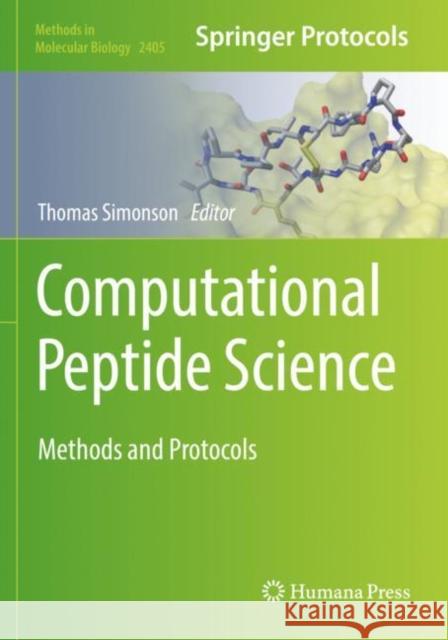Computational Peptide Science: Methods and Protocols » książka
Computational Peptide Science: Methods and Protocols
ISBN-13: 9781071618578 / Angielski
Computational Peptide Science: Methods and Protocols
ISBN-13: 9781071618578 / Angielski
(netto: 594,23 VAT: 5%)
Najniższa cena z 30 dni: 597,58
ok. 22 dni roboczych.
Darmowa dostawa!
This volume details current and new computational methodologies to study peptides. Chapters guide readers through antimicrobial peptides, foldability, amyloid sheet formation, membrane-active peptides, organized peptide assemblies, protein-peptide interfaces, prediction of peptide-MHC complexes, advanced free energy simulations for peptide binding, and methods for high throughput peptide or miniprotein design. Written in the format of the highly successfulMethods in Molecular Biologyseries, each chapter includes an introduction to the topic, lists necessary materials, software, and reagents, includes tips on troubleshooting and known pitfalls, and step-by-step, readily reproducible protocols.Authoritative and cutting-edge,Computational Peptides Science: Methods and Protocolsaims to provide concepts, methods, and guidelines to help both novices and experienced workers benefit from today's new opportunities and challenges.
This volume details current and new computational methodologies to study peptides. Chapters guide readers through antimicrobial peptides, foldability, amyloid sheet formation, membrane-active peptides, organized peptide assemblies, protein-peptide interfaces, prediction of peptide-MHC complexes, advanced free energy simulations for peptide binding, and methods for high throughput peptide or miniprotein design. Written in the format of the highly successful Methods in Molecular Biology series, each chapter includes an introduction to the topic, lists necessary materials, software, and reagents, includes tips on troubleshooting and known pitfalls, and step-by-step, readily reproducible protocols. Authoritative and cutting-edge, Computational Peptides Science: Methods and Protocols aims to provide concepts, methods, and guidelines to help both novices and experienced workers benefit from today's new opportunities and challenges.











